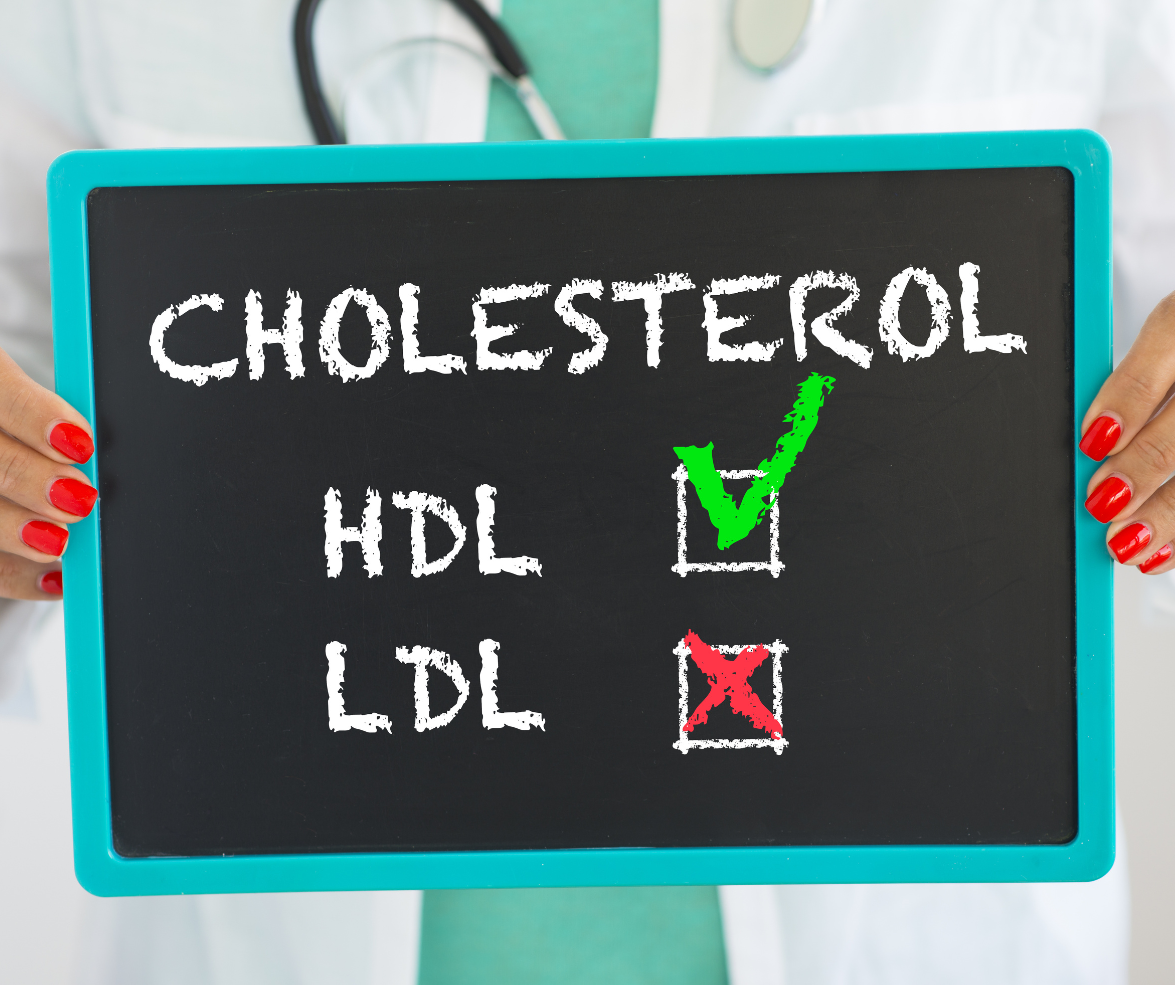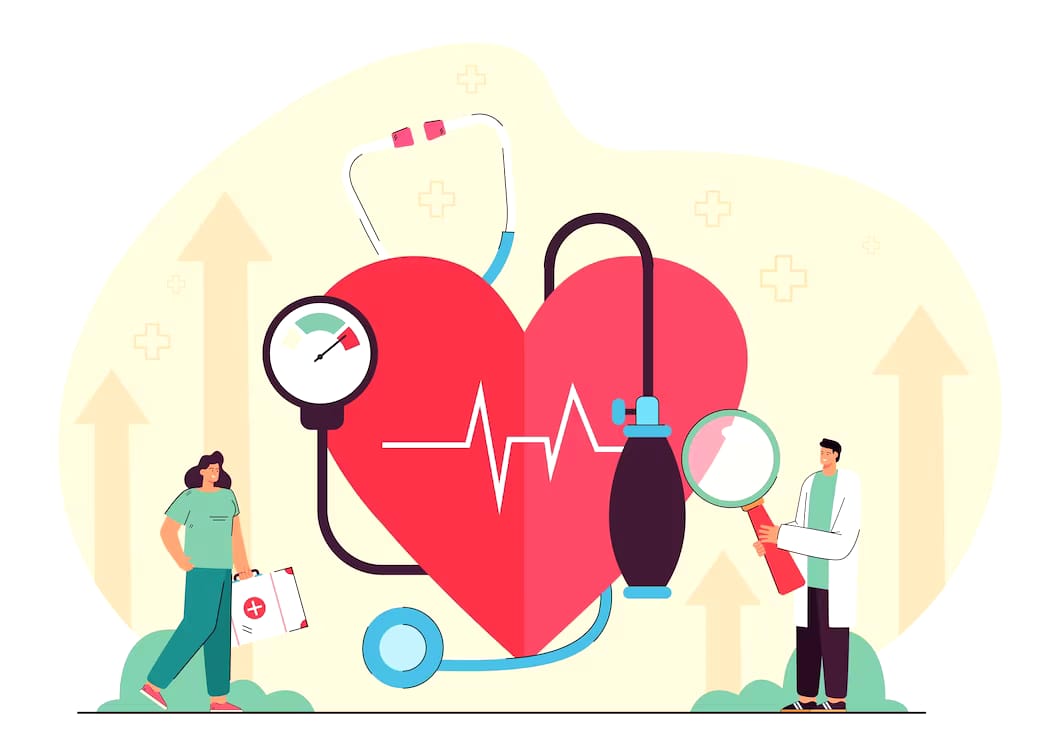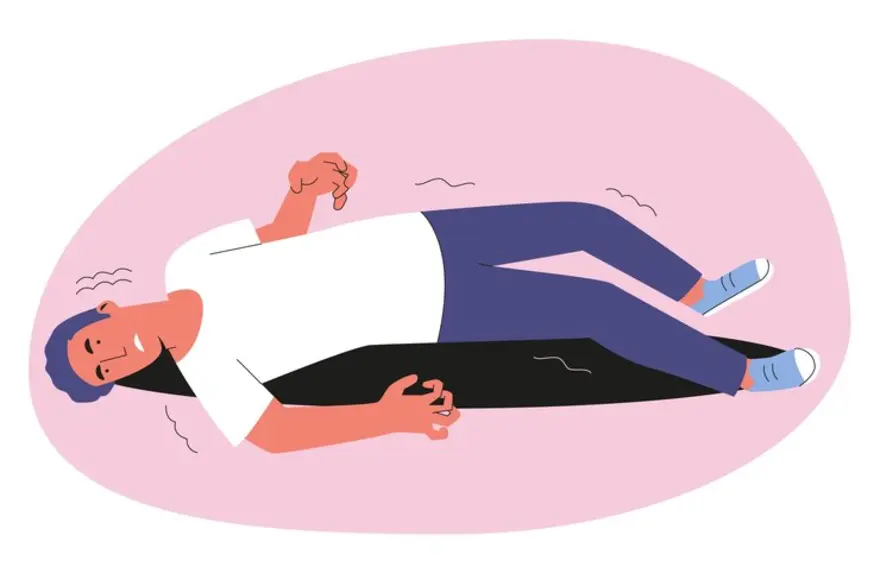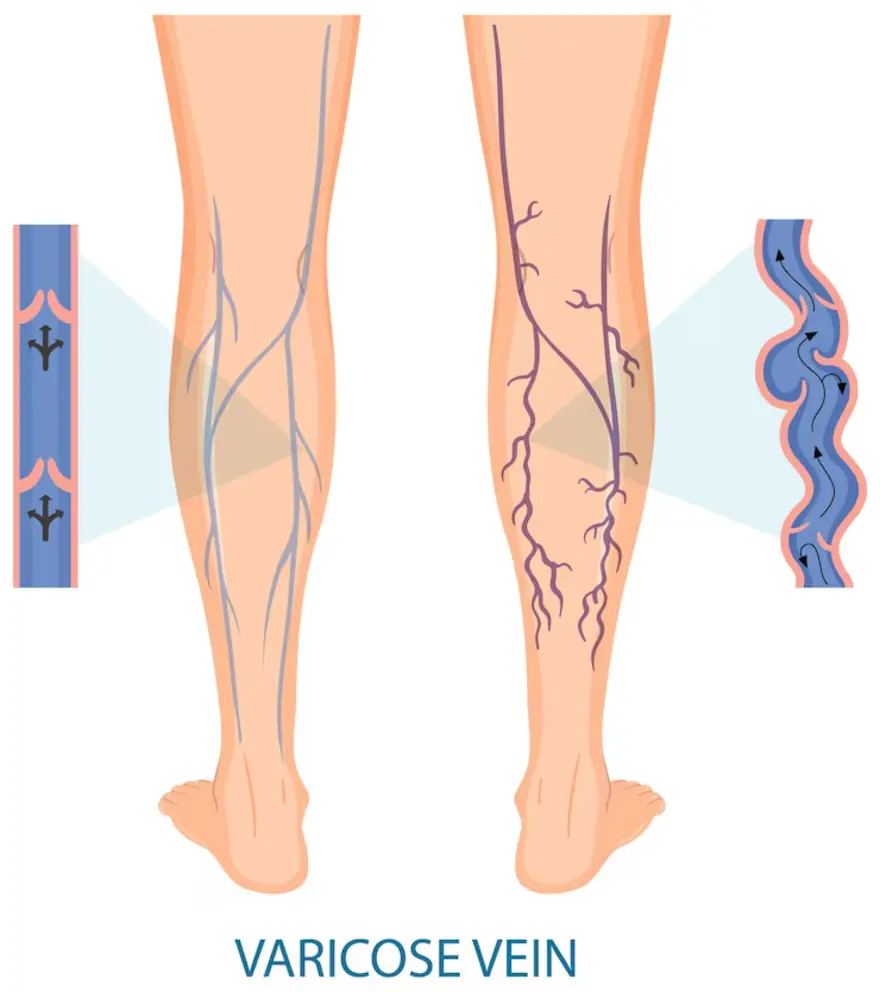Cholesterol
Bad Cholesterol: Types, Causes, Symptoms and Ways to Lower It
Any doctor you visit will put a lot of emphasis on eating habits. The primary reason for this is cholesterol and its adverse effects on the body. High cholesterol is a life-threatening condition and can be the direct cause of a heart attack. Unlike most conditions, high cholesterol produces no symptoms. As per Dr. Kush Kumar Singh, Lab Head (Delhi Reference Laboratory) at Metropolis, it is impossible to detect unless an individual gets a blood test that screens for cholesterol levels in the blood. Beyond a certain age, it is important to get tested for cholesterol every few months to ensure that it is kept in check. This blog has explained cholesterol, including its types, causes of high cholesterol, and the risks and health complications associated with it. Let’s dive in! What is Cholesterol? Cholesterol is a waxy and fatty substance produced in the liver. It is also called a lipid and is needed by the body for several functions. It needs cholesterol to create new healthy cells, protect the nerves, and secrete hormones. The cholesterol in your blood in major parts comes from the liver, while the rest is absorbed from the food we eat. Cholesterol is inherently not harmful to the body. On the contrary, it supports many bodily functions. A healthy amount of cholesterol in the blood is essential for your body. However, you must always ensure that the level of cholesterol in your blood never exceeds the recommended limit. Otherwise, you will be at risk of getting cardiovascular disease. What are the Types of Cholesterol? Cholesterol has a bad reputation for causing heart disease, but not all cholesterol is bad. There are two types of cholesterol - high-density lipoprotein (HDL) or good cholesterol and low-density lipoprotein (LDL) or bad cholesterol. Let’s examine each in detail. 1. Good Cholesterol HDL or high-density lipoprotein is often also called good cholesterol. You can substitute the word “high” in HDL with helpful because this lipoprotein carries back the excess cholesterol in the blood to the liver. Here, this excess cholesterol is flushed out through the excretory system. This way, the balance in the level of cholesterol is maintained by the liver. 2. Bad Cholesterol LDL, or low-density lipoprotein, is the bad cholesterol responsible for causing serious health complications. If bad cholesterol is left unchecked, it can lead to deposits of fats in the blood vessels. This can cause a blockage and have a direct impact on your blood pressure. Even more critical situations can arise if these globules of fat attach themselves to the arteries in the heart. You might then suffer a stroke which is often fatal. Causes of High Cholesterol Most patients with abnormal cholesterol levels have shown an unhealthy lifestyle. This includes consuming too much junk food that contains trans fats and exercising too little. Obesity can also be a major reason behind abnormal cholesterol levels. Other than these, several diseases can also be responsible for it. They are: High blood sugar Chronic kidney disease Polycystic ovary syndrome Hypothyroidism If you take certain medicines like anti-depressants, beta-blockers, diuretics, and birth control pills, then you may have abnormal cholesterol levels. You may also have high cholesterol due to some genetic conditions inherited at birth. Risk Factors of Cholesterol All of the causes mentioned above are risk factors for cholesterol. Apart from these, there are certain uncontrollable risk factors, such as: 1. Gender Women will generally have higher LDL cholesterol level as it tends to go up after menopause. So, a woman is at a higher risk of getting heart disease. 2. Age Your doctor will ask for a blood test to screen for cholesterol levels after 45 years of age for men and 55 years of age for women. This is because, with age, the cholesterol level rises in our bodies. 3. Smoking Smoking causes more deposits of fats in the blood vessels. If you are in the habit of smoking, then you are at risk of high cholesterol. Health Complications Due to Bad Cholesterol As you have already seen, bad cholesterol has a direct effect on the health of the heart. Let us now examine some of the health complications of bad cholesterol: Coronary Heart Disease. Peripheral Vascular Disease. High Blood Pressure. Erectile Dysfunction. Symptoms Bad cholesterol has no noticeable symptoms. You can only detect it through a blood test. The symptoms of bad cholesterol that you can detect are often too late. They are: 1. Heart attack 2. High blood pressure 3. Diabetes 4. Angina 5. Stroke 6. Pain in the legs When Should You Visit a Doctor? Most doctors recommend that cholesterol screening tests begin at the ages between 9 and 11. Thereafter, the test is to be repeated every five years until the individual reaches 45 years of age. After this, the tests should be repeated every year. If your family history suggests chances of diabetes, heart disease, or high blood pressure, your doctor may recommend more frequent tests. If, during these tests, you find your cholesterol to be higher than the recommended limits, consult your doctor immediately. Treatment Other than suggesting that you adopt healthy lifestyle choices, your doctor may prescribe one of the following medications for high cholesterol: 1. Statins These prevent the liver from making cholesterol in the body. 2. Cholesterol absorption inhibitors These drugs prevent the absorption of cholesterol from the foods you consume. 3. Bempedoic acid This is a new drug that functions in the same way as Statins. 4. Bile-acid-binding resins These indirectly lower the cholesterol level by binding with the bile produced in the liver. 5. PCSK9 inhibitors These are drugs that help the liver to absorb more LDL from the bloodstream. How to Avoid Bad Cholesterol? By making a few changes, you can avoid the risk of bad cholesterol. They are: 1. Consult your doctor every couple of months. 2. Adopt a healthy diet. 3. Quit alcohol and cigarettes. 4. Exercise daily. 5. Take medicine. Conclusion As you can see, there are many health hazards of high cholesterol. But it is quite easy to control it if you follow your doctor’s advice diligently. But the most important step is the diagnosis of high cholesterol. Final Takeaway Eat healthy foods. Quit smoking and drinking alcohol. Take your cholesterol medicine daily. Visit Metropolis Healthcare/Labs for cholesterol and other pathological tests.
Heart Health: Insights into Heart Disease and a Heart-Healthy Diet
Coronary heart disease is a major cause of death around the world. About half of cardiac arrests and most strokes happen to individuals whose cholesterol levels are normal. Cholesterol alone is not a good way to tell if someone will have a stroke. Today, a lot of healthy people die young. Most of them don't know their family history as a risk factor for early heart disease. This can put them at risk. In an exclusive interview with OnlyMyHealth, Dr. Ravi Kumar H.N., VP and Senior Pathologist at RV Metropolis Lab in Bengaluru, shares some tips on how to keep your heart healthy. He says that many new tests, such as coronary risk profiles, are available. However, people do only cholesterol or Lipid profile tests and take it for granted that they are normal. Numerous other factors contribute to early heart attacks. These include obesity, lack of regular exercise, quality sleep, sedentary lifestyle, poor eating habits, anxiety, stress, smoking, high blood pressure (BP), and diabetes mellitus (DM)." How to Maintain a Healthy Heart? When it comes to maintaining a healthy heart, there are three key factors that you need to keep in mind: high blood pressure, diabetes, and your family's health history. Here's a closer look at each of these factors: High blood pressure is one of the leading contributors to heart disease. To manage your blood pressure levels effectively, you should aim for a balanced diet that is low in sodium and saturated fats. Regular exercise can also help lower your blood pressure over time. Diabetes can damage the arteries and increase the risk of developing heart disease. If you have been diagnosed with diabetes or prediabetes, make sure that you manage it carefully by eating a healthy diet and exercising regularly. Knowing your family's health history is crucial as genetics play an important role in determining your risk for developing heart disease. If there are any instances of heart disease within your family then make sure that you inform your doctor about this so they can monitor you more closely. By taking steps to control high blood pressure levels, managing diabetes carefully and keeping track of your family's medical history, you can maintain your cardiovascular health over time! The Role of Cholesterol in Maintaining a Healthy Heart Cholesterol is a waxy, fat-like substance that is essential for the proper functioning of your body. However, having high levels of cholesterol in your bloodstream can increase your risk of heart disease and stroke. There are two types of cholesterol: LDL (low-density lipoprotein) and HDL (high-density lipoprotein). LDL cholesterol is often referred to as "bad" cholesterol because it can build up in the walls of arteries, leading to cardiovascular problems. HDL cholesterol, on the other hand, is known as "good" cholesterol because it helps remove excess LDL from the bloodstream. To maintain your heart health, it's important to maintain a balance between these two types of cholesterol. You can do this by maintaining a healthy diet low in saturated and trans fats and high in fruits, vegetables, whole grains, and lean protein sources like fish or chicken breast. If you have high levels of bad cholesterol despite making dietary changes, medications such as statins may be prescribed by your doctor to lower your risk for heart disease. It's important to speak with your healthcare provider about any concerns you may have regarding managing your blood lipid levels. The Role of Homocysteine in Maintaining a Healthy Heart Maintaining a healthy heart is essential for leading a happy and fulfilling life. By taking care of your blood pressure, managing diabetes, and being mindful of your family's health history, you can go a long way in preventing heart disease. But it's not just about these factors alone. You also need to pay attention to cholesterol levels and the role that homocysteine plays in maintaining a healthy heart. Homocysteine is an amino acid found in your blood that can damage your arteries when its levels become too high. This damage can lead to blockages and increase the risk of heart attacks or strokes. Maintaining lower homocysteine levels through diet or supplements such as folic acid, vitamin B6, or B12 may help reduce this risk. Conclusion Maintaining your heart health requires commitment and effort. Following a balance between good and bad cholesterol is ideal for a good and healthy heart. It is also essential to maintain healthy homocysteine levels. It takes more than regular exercise and eating right; it demands consistent monitoring of all aspects of your lifestyle along with medical intervention when necessary. But by making small changes over time, like cutting out processed foods or reducing stress levels, you can improve the overall quality of life while mitigating risks associated with cardiovascular disease!
 Home Visit
Home Visit Upload
Upload











1715579024.webp)




 WhatsApp
WhatsApp